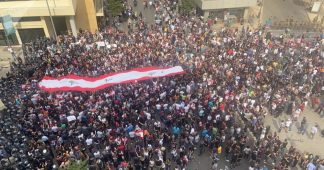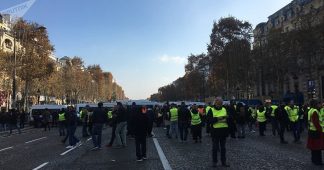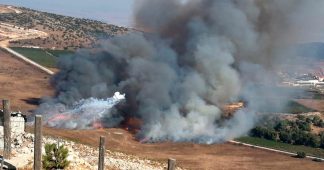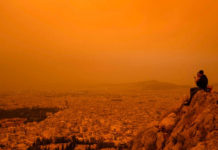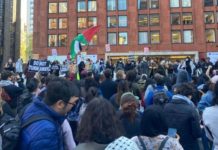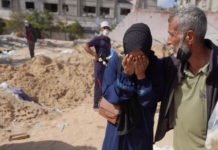October 22, 2019
Mass protests in Lebanon have entered their sixth day as hundreds of thousands around the country are taking to the streets to demonstrate against dire economic conditions, austerity and corruption, demanding the country’s leaders step down. The protests were sparked last week when the government announced a tax on WhatsApp calls, but the massive demonstrations have since grown into a call for revolution. More than a million demonstrators flooded the streets of Beirut, Tripoli and other cities over the weekend. Prime Minister Saad Hariri revoked the WhatsApp tax on Monday and announced a package of economic reforms, but protesters are continuing to call for his ouster. For more, we speak with independent Lebanese journalist Kareem Chehayeb, whose recent piece for The Washington Post is headlined “Lebanon’s protests and wildfires tell the same grim story.”
Transcript
JUAN GONZÁLEZ: Mass protests in Lebanon have entered their sixth day as hundreds of thousands around the country are taking to the streets to demonstrate against dire economic conditions, austerity and corruption, demanding the country’s leaders step down. The protests sparked last week when the government announced a tax on WhatsApp calls, but the massive demonstrations have since grown into a call for revolution. More than a million demonstrators flooded the streets of Beirut, Tripoli and other cities over the weekend. The government has revoked the WhatsApp tax, and on Monday Prime Minister Saad Hariri announced a package of economic reforms, but protesters are continuing to call for his ouster. This is one of the protesters, Majed al-Darwish, in Tripoli.
MAJED AL-DARWISH: [translated] People are going to the streets for their future and the future of their children. In reality, the political class that we have has left them nothing. Before this uprising, if we can call it that, the government tried to pick the pocket of every poor person until they were left with nothing.
AMY GOODMAN: Lebanon has one of the highest debt-to-GDP ratios in the world and a staggering unemployment rate of nearly 40%. The country is home to one-and-a-half million Syrian refugees and nearly half a million Palestinian refugees. As anti-government protests continue to rage in the streets, massive wildfires are also engulfing Lebanon, sparked by an extreme heat wave linked to climate change.
Our next guest, Lebanese journalist Kareem Chehayeb, wrote in a recent piece for The Washington Post, quote, “This week, Lebanon has seen two unprecedented events sweep across the country: rampant wildfires and sudden street protests against the government erupting across Lebanese cities. Both tell a common story — of how the government’s crippling austerity measures, failed policies and economic corruption have left the country vulnerable.” Kareem Chehayeb joins us now from Beirut, Lebanon.
Welcome to Democracy Now!, Kareem. Why don’t you describe what’s happening in the streets now and how it all began?
Read more at https://www.democracynow.org/2019/10/22/lebanon_protests_government_corruption_austerity
